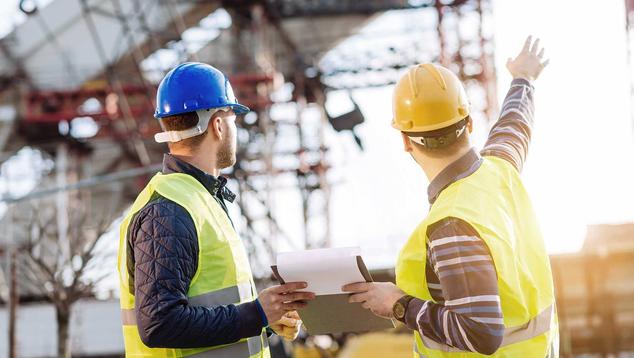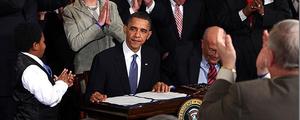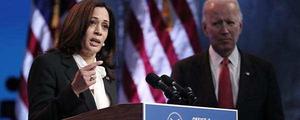Infrastructure -- that catchall title for the basic bones of our society -- is back in the news again. As The Wall Street Journal columnist Gerald Seib recently noted, "unsexy infrastructure" might be the one issue that unites a divided Washington in the coming year. Infrastructure has, in fact, long been an issue that generates bipartisan support, both among the American public and among elected officials. The problem has been, and continues to be now, figuring out a way to do something about it -- passing actual legislation that unleashes the trillions of dollars needed to address massive infrastructure problems.
There are few doubts that infrastructure improvements are needed. The American Society of Civil Engineers a few years ago gave the U.S. a D+ grade on its infrastructure, saying, "Our infrastructure systems are failing to keep pace with the current and expanding needs, and investment in infrastructure is woefully inadequate. Elected leaders on both sides of the political aisle need to make good on promises they have made to improve our nation's infrastructure."
The World Economic Forum says the U.S. ranks only 13th in the world in the quality of its infrastructure. The federal government has found that one in four U.S. bridges are deficient, and there are serious problems with the nation's roads, water, tunnels, airport terminals and electrical grid. Amtrak and New Jersey Transit trains traveling into New York from New Jersey cross under the Hudson River through an ancient tunnel built in 1910. Over 1,800 people were killed when levees and flood control systems failed in New Orleans during Hurricane Katrina; 13 motorists were killed when the I-35 bridge collapsed in Minnesota in 2007; thousands of Flint, Michigan, residents were without safe drinking water after the city's water system failed; small towns and homes in Michigan were inundated when two dams broke earlier this year; and millions of homes are routinely left without power when storms disable aging power grids.
Politicians Historically Have Supported Infrastructure Efforts
These problems are clearly recognized by most partisans and aren't really in dispute. And, there has been and apparently continues to be support from both parties' elected leaders for doing something about them.
Dwight Eisenhower signed into law the bill creating what has been called the largest infrastructure project in U.S. history -- the interstate highway system. Ronald Reagan said, "The bridges and highways we fail to repair today will have to be rebuilt tomorrow at many times the cost." Bill Clinton helped push through the Transportation Infrastructure Finance and Innovation Act in 1998. George W. Bush signed a $286 billion transportation infrastructure bill in 2005. Barack Obama signed a five-year infrastructure spending bill in 2015. And, we can harken back to the 2016 election campaign and recall that both Democratic nominee Hillary Clinton and Republican nominee Donald Trump promised massive investments in infrastructure if elected.
But Trump's campaign promises on infrastructure never materialized, as bipartisan efforts to pass infrastructure legislation disintegrated into disputes and inaction. So we are here today with pressing infrastructure needs but with little action taken.
Although Not a Top-of-Mind Issue, Public Strongly Supports Infrastructure Investments
I've been writing about the American public's views on infrastructure for years now. The main point: Doing something about infrastructure should be a no-brainer. This is one of relatively few policy areas for which there is strong public support from all Americans, regardless of political identity. As I said in a review last year: "Every bit of polling evidence I have reviewed shows that Americans are extremely supportive of new government infrastructure legislation."
Infrastructure is, however, not an issue that has prompted demonstrations and massive political action from the public, mainly because there are so many other issues on the public's mind. Infrastructure rarely appears with any frequency in our monthly update asking Americans to name the most important problem facing the nation. When a CBS News poll last year included infrastructure in a question that asked respondents to choose the highest priority for Congress among six issues, infrastructure came in below healthcare, immigration, the environment and the national debt. Gallup similarly found earlier this year that Americans rated infrastructure below the economy, education, healthcare and terrorism/national security when ranking issues as extremely or very important to their presidential vote. And I don't recall any questions that asked directly about infrastructure in this year's two presidential and one vice presidential debates.
In short, the public strongly supports efforts to fix infrastructure problems (even when a figure like $1 trillion is included in the question wording), but the priority given the issue is drowned out in the public's consciousness by seemingly more urgent issues like COVID-19, the economy, healthcare, racial inequity and negative views of elected officials.
So, while infrastructure could be the issue that unites Washington next year, as The Wall Street Journal's Seib points out, it is going to take some initiative on the part of the new administration and Congress to put it on the front burner along with so many other pressing concerns that all have competing claims on the federal budget.
Infrastructure Efforts Typically Complicated by Elected Officials
Politicians tend to encumber infrastructure with other considerations when they address it, providing one reason why legislative efforts to face the infrastructure crisis have dissipated ineffectually in the past. As one example, Trump walked away from infrastructure negotiations last year, according to reports, because he was angry about ongoing congressional investigations into his presidential campaign.
President-elect Biden appears to want to embed infrastructure in a broader context. The Biden-Harris transition website section on infrastructure -- titled "The Biden Plan to Build a Modern, Sustainable Infrastructure and an Equitable Clean Energy Future" -- addresses infrastructure as part of a larger effort to combat climate change and provide higher-paying jobs for workers. The text says that an emphasis on infrastructure will "create millions of good, union jobs rebuilding America's crumbling infrastructure -- from roads and bridges to green spaces and water systems to electricity grids and universal broadband -- to lay a new foundation for sustainable growth, compete in the global economy, withstand the impacts of climate change, and improve public health, including access to clean air and clean water."
Is this concatenation of issues good or bad? As I recently pointed out, the public generally tilts in favor of efforts to address climate change, certainly applauds efforts to ensure we have clear air and clean water, likes the idea of creating more jobs, and has a generally positive view of unions. So it could be argued that Biden's "combination of ingredients" approach will make infrastructure legislation more of a priority to the public and legislators alike. At the same time, however, climate change and unionization are quite controversial in some quarters, complicating the whole matter and potentially lowering the probability of infrastructure legislation being passed.
I have noted that last year's infrastructure failure underscores government's problems in getting things done, and it remains to be seen if a new administration will have more success than the last in actually overcoming partisan bickering and doing something about the issue. If nothing on infrastructure gets done in the new administration, Americans will once again be left pondering the reasons why their government is unable to tackle a problem they -- the public -- wholeheartedly endorse.




